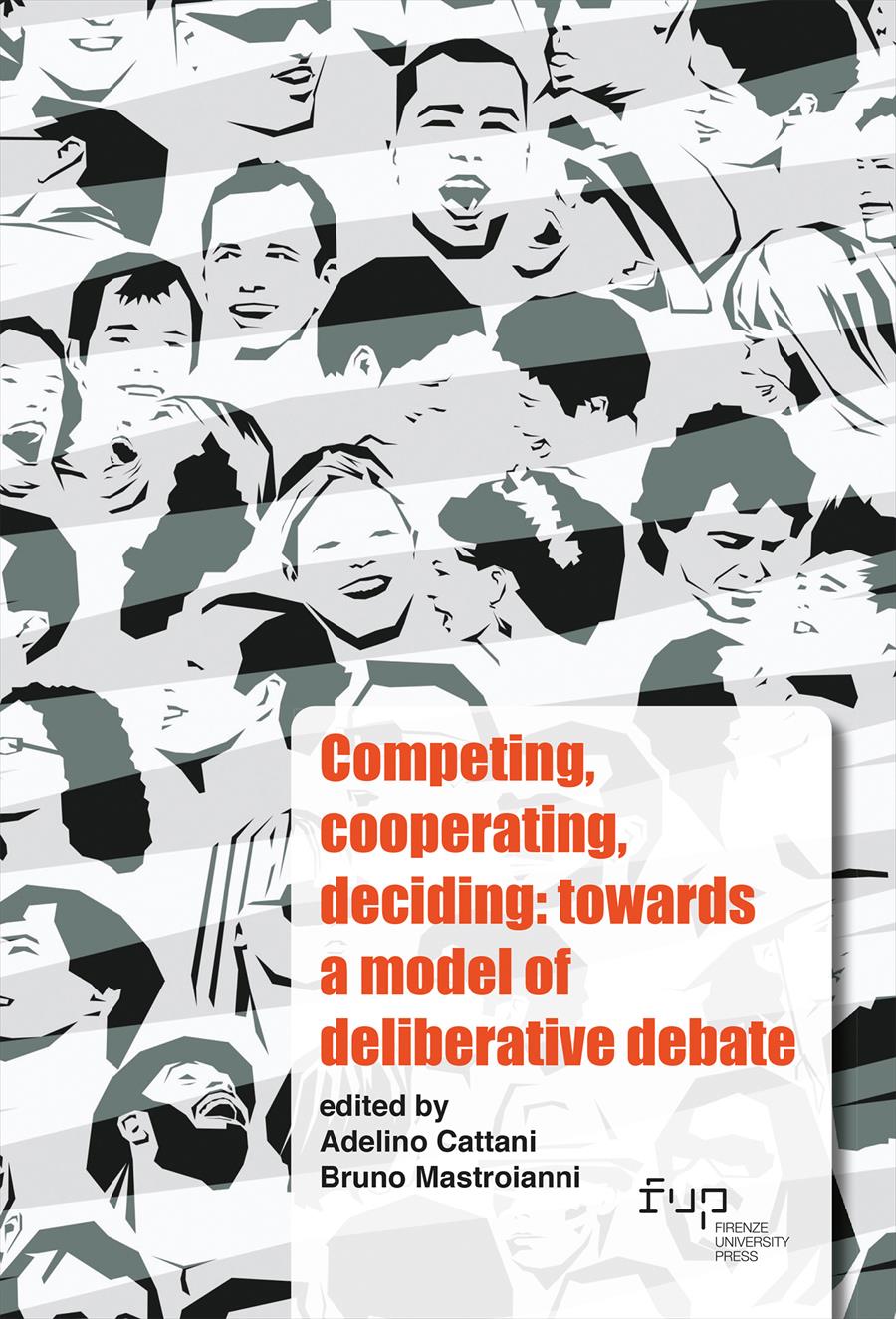- Competing, cooperating, deciding: towards a model of deliberative debate
- Edited by Adelino Cattani, Bruno Mastroianni
Improving Argumentative Skills in Education: Three Online Discussion Tools
- Jan Albert van Laar
- © 2021 Author(s) |
- CC BY 4.0
- DOI: 10.36253/978-88-5518-329-1.09
How can we foster sound argumentation and valid criticism in education? How to help students to avoid fallacies, resist polarization, respond wisely to misleading information, and how to make them produce arguments that are genuinely responsive to the position of those they address? I sketch a dialogical account of the nature of sound argument and criticism. Then, I discuss two types of argumentative dialogue: persuasion dialogue and negotiation dialogue. Finally, I explain how software applications provide an opportunity for students to analyse, evaluate and produce arguments, and to critically think about the design of discussion procedures. I also discuss a third software application that enables teachers and advanced students to themselves design online discussion procedures, so as to experiment with them and to advance their understanding of the advantages and disadvantages of various design choices. This paper support the idea that students’ argumentative skills will be enhanced by letting them engage in the online discussion procedures presented.
- Keywords:
- Argumentation Theory,
- debate,
- education,
University of Groningen, Netherlands - ORCID: 0000-0001-8243-6921
- Barth, E. M., and E. C. W. Krabbe. 1982. From Axiom to Dialogue: A Philosophical Study of Logics and Argumentation. Berlin & New York: Walter de Gruyter.
- van Eemeren, F. H. 2010. Strategic Maneuvering in Argumentative Discourse: Extending the Pragma-Dialectical Theory of Argumentation. Amsterdam: John Benjamins.
- van Eemeren, F. H., and R. Grootendorst. 2004. A Systematic Theory of Argumentation. Cambridge: Cambridge University Press.
- Fishkin, J.S., and R. C. Luskin. 2005. “Experimenting with a Democratic Ideal: Deliberative Polling and Public Opinion.” Acta Politica 40: 284-98.
- Hamblin, C. L. 1970. Fallacies. Newport News, VA: Vale Press.
- Kuhn, D. 2005. Education for Thinking. Cambridge Mass.: Harvard University Press.
- van Laar, J. A., and E. C. W. Krabbe. 2018. “The role of argument in negotiation.” Argumentation 32: 549-67.
- Mansbridge, J., J. Bohman, S. Chambers, D. Estlund, A. Follesdal, A. Fung, C. Lafont, B. Manin, and J. L. Martì. 2010. “The Role of Self-Interest and the Role of Power in Deliberative Democracy.” The Journal of Political Philosophy 18: 64-100.
- Mercier, H., and D. Sperber. 2011. “Why do humans reason? Arguments for an argumentative theory.” Behavioral and brain sciences 34: 57-111.
- Schulz-Hardt, S., F. C. Brodbeck, A. Mojzisch, R. Kerschreiter, and D. Frey. 2006. “Group decision making in hidden profile situations: Dissent as a facilitator for decision quality.” Journal of Personality and Social Psychology 91: 1080-93.
- Sunstein, C. R., and R. Hastie. 2008. “Four failures of deliberating groups.” Public Law & Legal Theory Working Papers No. 215. Retrieved March 16 2020 <http://chicagounbound.uchicago.edu/public_law_and_legal_theory/126>
- Sunstein, C. R., and R. Hastie. 2015. Wiser: Getting Beyond Group Think to Make Groups Smarter. Boston, MA: Harvard Business Review Press.
- Walton D. N., and E. C. W. Krabbe. 1995. Commitment in Dialogue: Basic Concepts of Interpersonal Reasoning. Albany NY: State University of New York Press.
- Weinstock, D. 2013. “On the possibility of principled moral compromise.” Critical Review of International Social and Political Philosophy 16: 537-56.
- Wendt, F. 2016. Compromise, Peace and Public Justification: Political Morality Beyond Justice. Switzerland: Palgrave Macmillan.
Chapter Information
Chapter Title
Improving Argumentative Skills in Education: Three Online Discussion Tools
Authors
Jan Albert van Laar
Language
English
DOI
10.36253/978-88-5518-329-1.09
Peer Reviewed
Publication Year
2021
Copyright Information
© 2021 Author(s)
Content License
Metadata License
Bibliographic Information
Book Title
Competing, cooperating, deciding: towards a model of deliberative debate
Editors
Adelino Cattani, Bruno Mastroianni
Peer Reviewed
Number of Pages
168
Publication Year
2021
Copyright Information
© 2021 Author(s)
Content License
Metadata License
Publisher Name
Firenze University Press
DOI
10.36253/978-88-5518-329-1
ISBN Print
978-88-5518-328-4
eISBN (pdf)
978-88-5518-329-1
Series Title
Communication and Philosophical Cultures. Researches and Instruments
Series ISSN
2975-1152
Series E-ISSN
2975-1233
